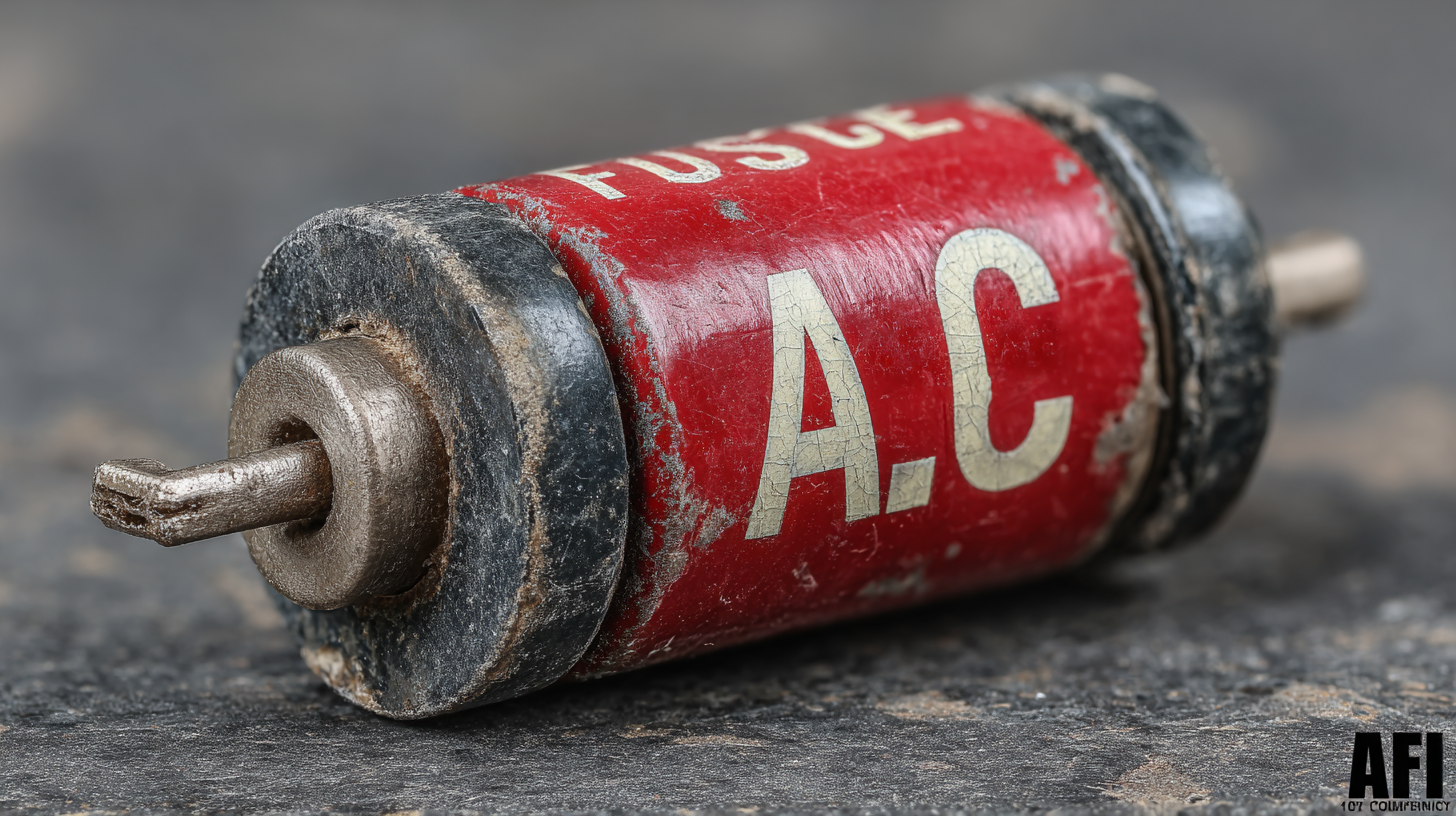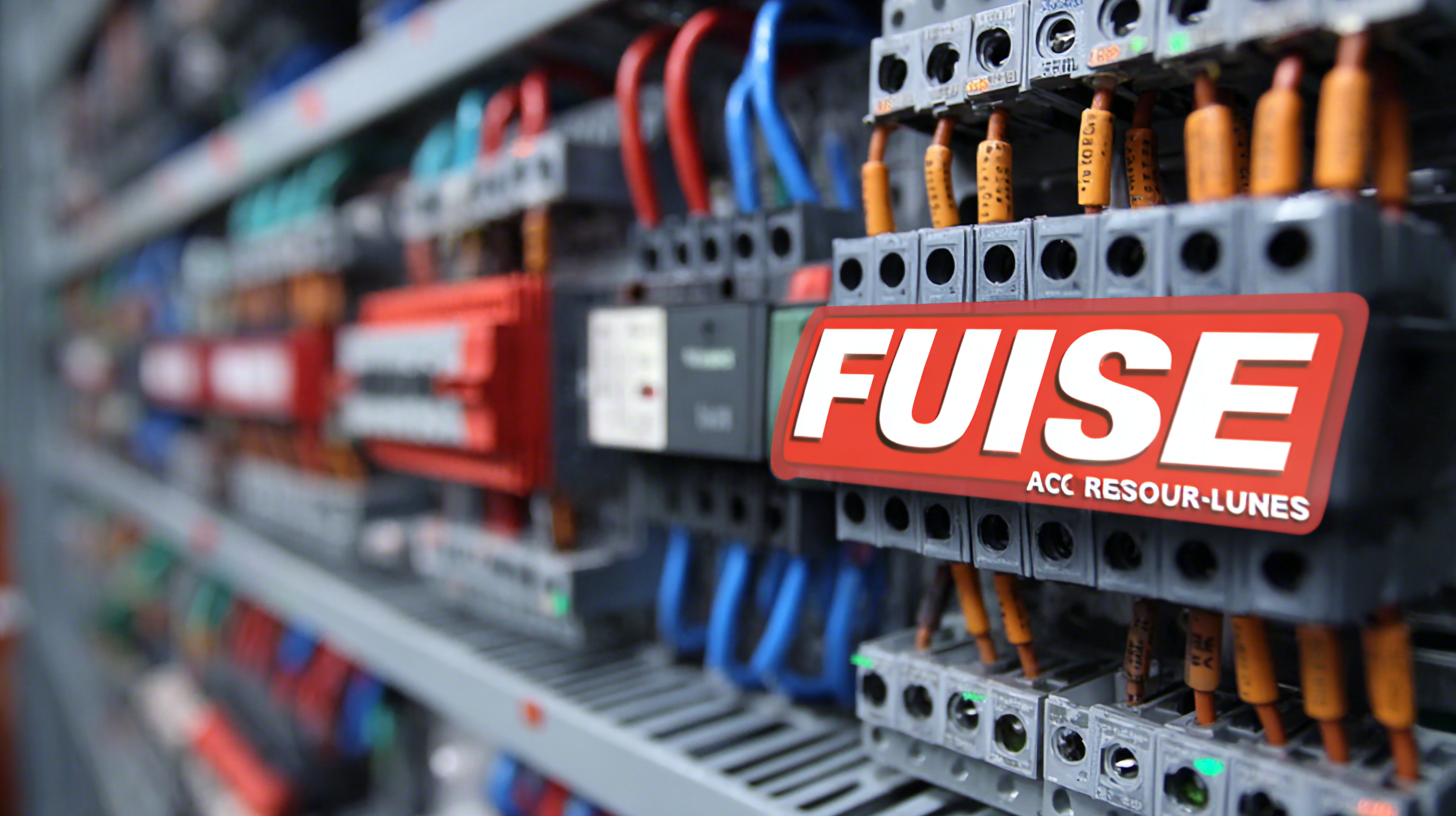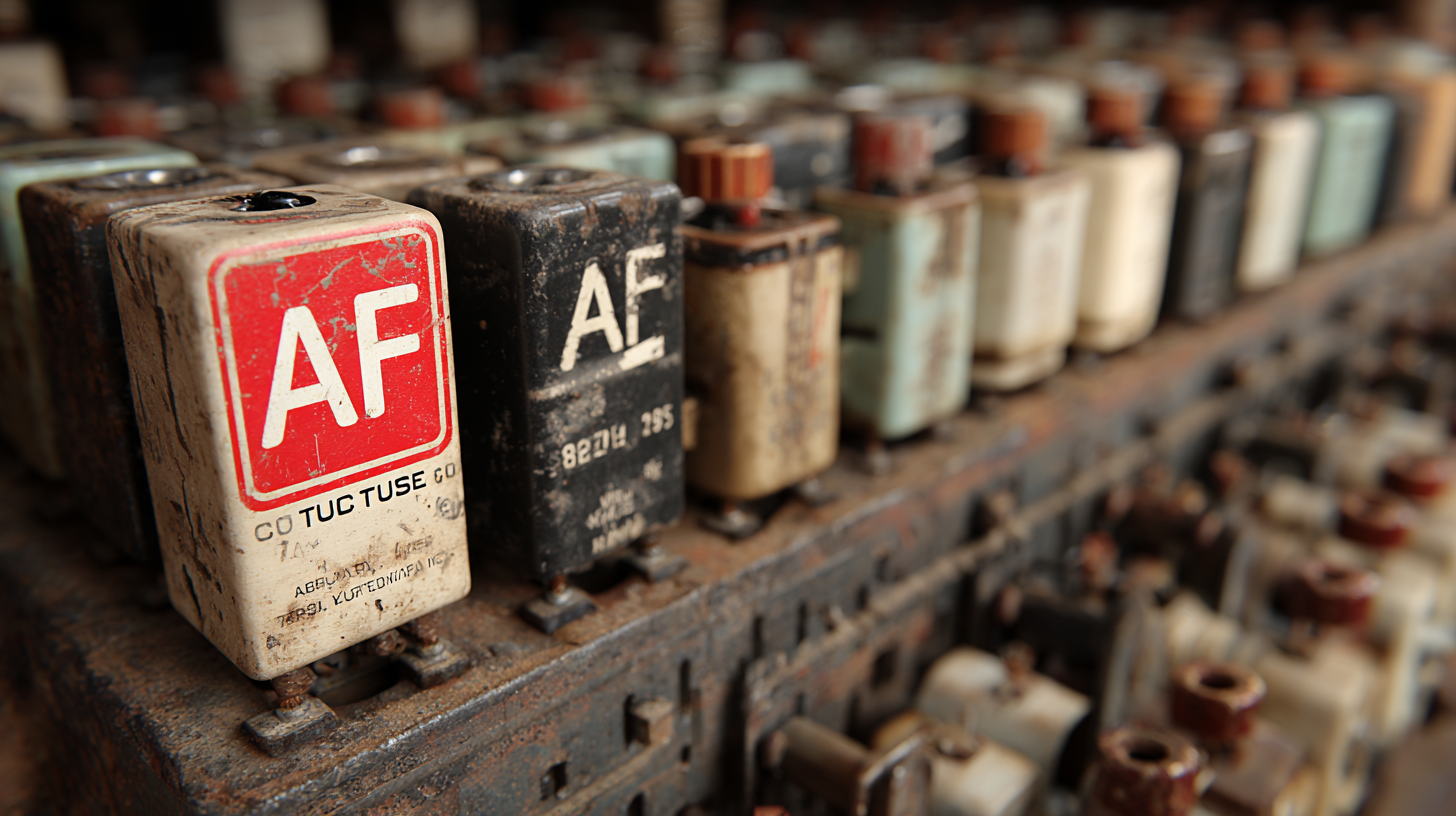
The Ultimate Checklist for Sourcing the Best AC Industrial Fuses Worldwide
In the rapidly evolving landscape of industrial electrical components, AC Industrial Fuses play a critical role in ensuring safety and reliability in various applications. According to a recent market analysis by Research and Markets, the global industrial fuse market is projected to reach USD 3.2 billion by 2025, growing at a CAGR of 4.8% from 2020. This growth is driven by the increasing adoption of automation and the rising demand for renewable energy solutions. As industries strive for efficiency, the importance of selecting the right AC Industrial Fuses cannot be overstated. These fuses not only safeguard equipment but also enhance operational performance. In this blog, we will provide the ultimate checklist for professionals seeking the best AC Industrial Fuses worldwide, ensuring that your sourcing decisions are informed by the latest industry standards and insights.

Key Factors to Consider When Choosing AC Industrial Fuses
When sourcing AC industrial fuses, several key factors must be considered to ensure optimal performance and safety. First and foremost is the fuse's voltage and current ratings. It's crucial to select fuses that can handle the specific operational conditions of your applications. Exceeding these ratings can lead to critical failures or hazards, making it essential to have a complete understanding of the electrical system's requirements.
Another significant factor is the fuse's response time, which determines how quickly the fuse will react to overcurrents. Fast-acting fuses are ideal for sensitive electronic equipment, while time-delay fuses can handle temporary overloads without blowing. Additionally, one should assess the fuse's construction and materials, as these elements contribute to durability and reliability in harsh environments. By thoroughly evaluating these considerations, you can ensure you are choosing the best AC industrial fuses that meet your specific operational needs.
The Ultimate Checklist for Sourcing the Best AC Industrial Fuses Worldwide
| Criteria | Description | Importance Level | Considerations |
|---|---|---|---|
| Voltage Rating | Ensure the fuses can handle the required voltage for your application. | High | Select fuses rated slightly above operational voltage for safety. |
| Current Rating | Choose fuses based on the maximum current load. | Critical | Check for overload conditions during operation. |
| Fuse Type | Select between slow-blow, fast-acting, or time-delay fuses based on application needs. | Moderate | Identify the typical fault conditions of equipment. |
| Physical Size | Ensure the fuses fit well in the existing fuse holders or panels. | Moderate | Measure existing fuse space before purchasing. |
| Standards Compliance | Verify compliance with international electrical standards. | High | Use certified products for reliable compliance. |
| Manufacturer Reputation | Research the reliability and trustworthiness of manufacturers. | Moderate | Consider long-term supplier relationships. |
| Price | Compare prices among suppliers for similar specifications. | Low | Look for bulk purchase discounts. |
Top Brands in the AC Industrial Fuse Market: A Comparative Review
When sourcing AC industrial fuses, a comparative review of top brands can provide vital insights for making informed decisions. Renowned manufacturers such as Siemens, Eaton, and Schneider Electric stand out in the market, each offering unique features and technologies.
 Siemens is known for its innovative designs that improve efficiency and safety, while Eaton emphasizes sustainability in its production processes and product lifecycle. Schneider Electric, on the other hand, excels in delivering reliable solutions with a wide range of fuse options tailored for various industrial applications.
Siemens is known for its innovative designs that improve efficiency and safety, while Eaton emphasizes sustainability in its production processes and product lifecycle. Schneider Electric, on the other hand, excels in delivering reliable solutions with a wide range of fuse options tailored for various industrial applications.
Examining the performance and reliability of these brands can help identify the best fit for specific requirements. Siemens fuses often incorporate advanced protection mechanisms, making them ideal for high-demand environments. Eaton's emphasis on modularity and ease of installation could be beneficial for projects with tight timelines. Meanwhile, Schneider Electric’s robust customer service and extensive support network ensure that users can obtain assistance whenever needed.
By understanding the strengths and weaknesses of these leading manufacturers, buyers can make more strategic choices, ensuring optimal safety and performance in their industrial operations.
Understanding Different Types of AC Industrial Fuses and Their Applications
When it comes to selecting AC industrial fuses, understanding the various types available and their specific applications is crucial. There are primarily three categories of AC fuses: cartridge fuses, blade fuses, and semiconductor fuses. Cartridge fuses, often rated for high current and used in heavy-duty applications, are essential in protecting motors and transformers. According to a recent industry report by Technavio, the global industrial fuse market is projected to grow at a CAGR of 3.12% from 2022 to 2026, indicating a rising demand for efficient and reliable fuse solutions.
Blade fuses, on the other hand, are commonly found in automotive and low-voltage applications due to their compact size and easy installation. Their ratings typically range from 1-100 amps, making them versatile for various uses. For sensitive electronic equipment, semiconductor fuses are specifically designed to protect against overcurrents, and their unique design ensures minimal voltage drop during operation. As per the same report, the growing adoption of automation technologies in industries drives the need for more robust protection devices like these fuses.
Tip: When choosing the right AC fuse, always match the fuse type and rating to the specific requirements of your equipment to avoid potential damage or failure. Additionally, consider environmental factors such as temperature and humidity, which can affect the performance of fuses. Regularly reviewing and updating your fuse inventory can lead to enhanced operational efficiency and safety.
The Ultimate Checklist for Sourcing the Best AC Industrial Fuses Worldwide
Price vs. Quality: Evaluating the Cost-Effectiveness of Various Fuses
When evaluating industrial fuses, the balance between price and quality is crucial. Recent market analyses indicate that the cost of electric fuses can vary significantly, with prices ranging from a few dollars to over a hundred based on specifications, material, and brand reputation. A study from the International Electrotechnical Commission shows that investing in high-quality fuses can lead to reduced maintenance costs and less downtime, ultimately providing a more cost-effective solution over time.
Additionally, the cost-effectiveness of components like fuses plays a vital role in industries similar to the recent pricing reforms in Japan's healthcare sector. Just as a new value-based price adjustment system aims to ensure that patients receive effective medicines at reasonable prices, industries must adopt a framework for assessing the true value of the fuses they choose.
Factors like reliability, safety ratings, and return on investment should be meticulously analyzed before making a purchase, to ensure not just short-term savings but long-lasting operational efficiency. Reports indicate that businesses that prioritize quality in their component sourcing often see a 20-30% reduction in long-term operational costs.
Global Sourcing Tips for Securing Reliable AC Industrial Fuses
When it comes to sourcing reliable AC industrial fuses globally, it’s crucial to adopt a strategic approach. Start by identifying reputable manufacturers and suppliers who have a proven track record in the industry. Utilize online platforms and trade shows to connect with potential vendors. Look for companies with certifications and quality assurance processes in place, as this often reflects their commitment to producing high-quality products.
Another important tip is to understand the specific requirements of your application. Different environments and systems may require fuses with varying ratings and specifications. Conduct thorough research on the fuse types that meet industry standards while ensuring compatibility with your machinery. Don’t hesitate to request samples to evaluate the product's performance firsthand before making a bulk purchase.
Lastly, prioritize suppliers who are responsive and provide excellent customer support. Clear communication is key to resolving any issues that may arise and ensuring timely delivery. By maintaining strong relationships with your suppliers and regularly reviewing your sourcing strategies, you can ensure a steady supply of reliable AC industrial fuses that meet your operational needs.

